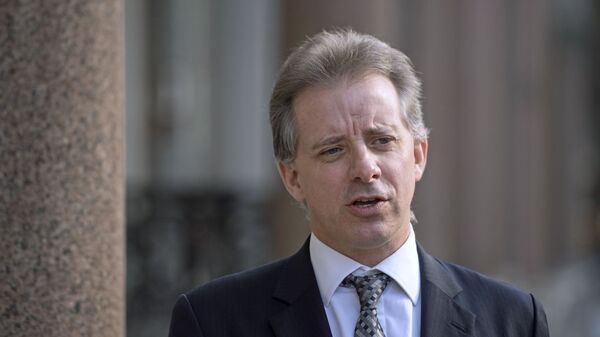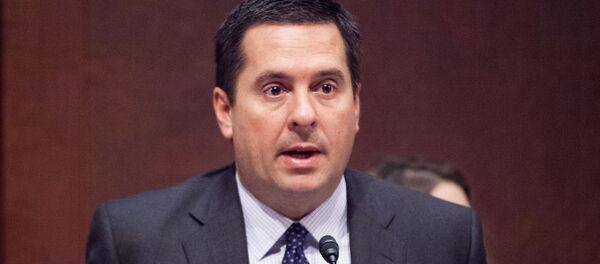Steele went into hiding in March 2017 after being named as the author of Fusion GPS' private intelligence report alleging misconduct and conspiracy between Donald Trump's presidential campaign and the Russian government before and during the 2016 election. However, being ranked 38th in Vanity Fair's list of the world's 100 most influential people was enough to make him break cover — he emailed the magazine thanking them, and seemingly aimed a coded slight at Russian President Vladimir Putin, who ranked 58th, and Trump, who didn't rank at all.
"I find myself in the company of many talented and distinguished people, although I personally would not accord such accolades to some of the other foreign nationals included in the list. In these strange and troubling times, it's hard to speak unpalatable truths to power, but I believe we all still have a duty to do so. I salute those on your list, and otherwise, who've had the courage to speak out over the last year, often at great personal cost. At a time when governance is so distorted and one-sided, as I believe it currently is in the United States, the media has a key role to play in holding it accountable," Steele wrote.
'Pretty Shaky'
Steele spoke with reference to litigation that arose in wake of the Fusion GPS dossier's publication by BuzzFeed - a move criticized by many other mainstream outlets.
On February 3, 2017, Aleksej Gubarev, head of the technology company XBT, sued BuzzFeed and Steele for defamation. The dossier alleged that XBT "[used] botnets and porn traffic to transmit viruses, plant bugs, steal data and conduct 'altering operations' against the Democratic Party leadership." The defamation case against Steele is ongoing — the action against Buzzfeed will commence in November. In May 2017, at a High Court of Justice hearing, Steele's lawyers said the ex-spy hadn't actually intended for the dossier to be released and one of the documents "needed to be analyzed and further investigated/verified."

His confidence is shared by few with in-depth knowledge of Russia. For instance, former British Ambassador to Russia Tony Brenton said its contents "look pretty shaky," and expressed doubts over Steele's ability to penetrate the Kremlin and Russian security agencies, given he's an outsider.
Former acting CIA Director Michael Morell has also raised concerns about the dossier, due to Steele's intelligence gathering approaches — he gave money to intermediaries, who in turn paid sources for the information contained in the dossier. "Unless you know the sources, and unless you know how a particular source acquired a particular piece of information, you can't judge the information — you just can't," Morell said.
"Steele is a charlatan who knocked up a series of allegations that are either wildly improbable, or would need a high level source access he could not possibly get in today's Russia, or both. He told the Democrats what they wish to hear and his audience — who had and still have no motivation to look at it critically — paid him highly for it," Murray wrote in March 2018.
Web of Deceit
The reliability and value of Steele's sources is certainly questionable — while he spied in Moscow in the 1990s and may have been one of the UK's most senior intelligence officers in Russia as the Soviet Union collapsed, it's unknown what, if any, contacts he retained after leaving. He cannot travel to Russia himself.
Attempts by Miller to distance himself from Skripal and Orbis Business Intelligence — supported by the UK government — have only added to such suspicions. In the days following Skirpal's poisoning on March 4, Miller deleted his LinkedIn — concurrently, The Daily Telegraph published an article referring to a "security consultant" employed by the company that compiled the Fusion GPS dossier on Donald Trump, "who lived close to Skripal and is understood to have known him for some time," and had deleted his LinkedIn.
While the article declined to mention the security consultant's name, their description is precisely applicable to Miller. The same day as The Telegraph article was published, the UK government issued a D-notice that likewise could easily apply to Miller.
The D-notice may account for why no references to Miller have been made by mainstream news organizations in the months since.






